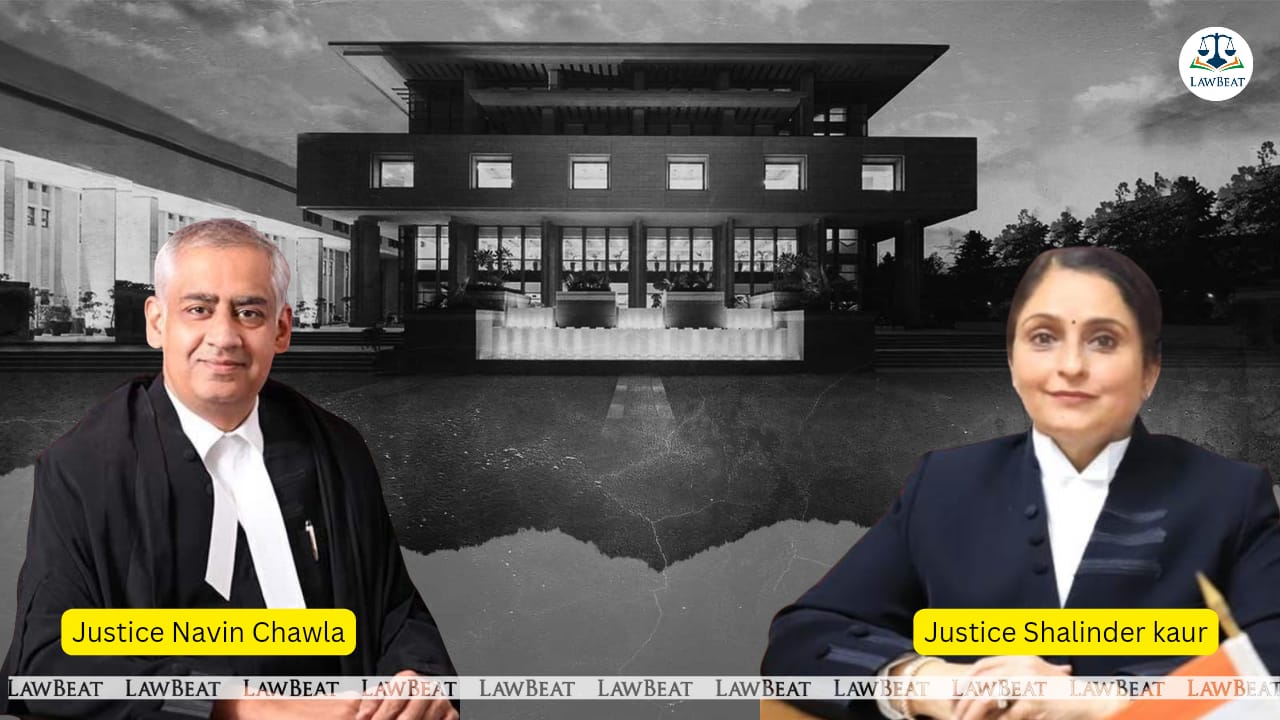Retrospective Promotion Cannot Be Denied Due To Change In Circumstances Beyond The Officer’s Control: Delhi HC

“The petitioner could not complete the above said eligibility period along with his batchmates only for the reasons which have already been recognised by the respondents to be beyond his control and for which the respondents themselves have given the benefit of retrospective seniority to the petitioner while promoting him to the rank of Assistant Commandant and the Deputy Commandant. In our view, therefore, the denial of retrospective seniority to the petitioner… cannot be sustained” the court outlined.
The Delhi High Court, recently, granted retrospective promotion to an officer of the Central Reserve Police Force (CRPF) who was denied his rightful promotion. The bench of Justice Navin Chawla and Justice Shalinder Kaur observed that the officer could not be denied retrospective promotion due to circumstances that were beyond the control of the officer.
The court outlined, “Evident that the respondents themselves had recognized that it was not due to the fault of the petitioner that the petitioner could not earlier be promoted to the rank of Assistant Commandant and later to the rank of Deputy Commandant along with his batchmates. It was due to circumstances beyond his control, that is, for him not being relieved by his borrowing department, that he could not obtain these ranks along with his batchmates”.
The petitioner, initially a Sub-Inspector in the Central Reserve Police Force (CRPF), was promoted to Inspector/GD on March 31, 1999, and subsequently sent on foreign deputation starting June 21, 2001. In 2004, upon becoming eligible for a higher rank, the Ministry of External Affairs declined to recall him to the CRPF due to his ongoing deputation. Following his release from deputation on May 1, 2007, he rejoined the CRPF in July 2007, but missed opportunities for promotion as a result of his absence.
To address this, orders were issued in October and November 2007 to protect his seniority and chance of promotion. After completing the required course, he was promoted to Assistant Commandant in October 2009, although he was not granted a retrospective promotion. Consequently, he submitted a request for redress, and in 2011, his seniority was adjusted, placing him above another officer, Ajay Kumar. However, Ajay Kumar was promoted to Deputy Commandant in 2011, while the petitioner received the same promotion in August 2012, leading him to again seek seniority reassignment. In 2013, his seniority was reestablished above Ajay Kumar’s in the rank of Deputy Commandant.
When the petitioner became eligible for further promotions, his name was omitted from promotion lists, despite his previous designation and eligibility. Although recommended for promotion by the Departmental Promotion Committee for 2018-19, his name was again excluded, prompting additional appeals. The CRPF informed him that, under the 2010 Recruitment Rules, a minimum of 10 years of Group-A service was required, which he had not yet completed.
Following a series of appeals and representations, he was promoted on December 31, 2020. Despite his eligibility, he was again denied the benefit of Non-Functional Financial Upgradation (NFFU) granted to others, including Ajay Kumar, leading to another representation, which was dismissed in February 2022. He then filed a petition with the High Court.
Advocate Ankur Chhibber argued that the petitioner, having been granted retrospective seniority to the position of Assistant Commandant per the Rules, should have his appointment date set as 17.08.2004, which matched his junior, Mr. Ajay Kumar. This, he asserted, entitled the petitioner to subsequent promotions and Non-Functional Financial Upgradation (NFFU) from that date.
Standing Counsel Vineet Dhanda, representing the Union, contended that, per CRPF recruitment rules, the petitioner needed 10 years of Group-A service and 5 years at the Deputy Commandant rank to qualify for promotion. Furthermore, they stated that only personnel in the Medical Category 'SHAPE-I' were eligible for promotion, and the petitioner had not met the required service duration. Seniority, they argued, adhered to government standards, meaning a candidate deemed unfit could not rank higher than a junior deemed fit. In 2020, a Screening Committee found the petitioner unfit due to insufficient Group-A service as of April 1, 2017.
The court noted that the petitioner could not be penalized for delays outside his control, particularly as his deputation was initiated by the Ministry. The court also noted that the respondents did not adopt a lenient approach in assessing the petitioner’s case, resulting in undue delay and inequity in his promotion.
Citing the case of Ashok Kumar v. Union of India, the court highlighted that the CRPF was responsible for ensuring personnel met their promotion requirements, not the individuals themselves. The court concluded that the petitioner deserved retrospective seniority and directed that he be placed above Ajay Kumar in rank as of the date Kumar was promoted.
For Petitioners: Advocates Ankur Chhibber, Nikunj Arora, Anshuman Mehrotra and Pranjal Marwah
For Respondents: Standing Counsel Vineet Dhanda
Case Title: Jeewraj Singh Shekhawat v Union Of India And Ors (2024:DHC:8045-DB)
